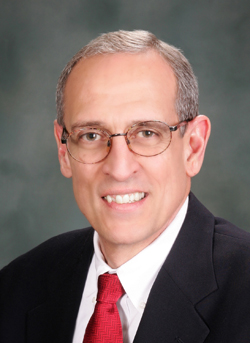Economist Downplays Value of 0.08 Breath Alcohol Standard
 |
Don Freeman |
Suspend your
common sense disbelief for a moment and consider an economist's
perspective on what works and what doesn't when it comes
to curbing alcohol abuse.
Don Freeman,
Sam Houston State University professor of economics and chair
of the economics and international business department, did that
and came up with what some may consider surprising conclusions.
His study used data on traffic fatalities for the 50 states from
1982-2004.
Lowering the
legal blood alcohol content (BAC) standard from 0.10 to 0.08
has had "little to no effect on traffic fatalities," he
found.
On the other
hand, Freeman says in a recently published article in the refereed
journal Contemporary Economic Policy, "consistent and significant
reductions in fatalities" follow implementation of tougher
administrative license revocation (ALR) laws.
ALR laws allow
for the immediate suspension of driving privileges for those
who fail a BAC test or refuse to submit to one.
Freeman also
offered "robust support" for enforcement of seat belt
laws and reduction of highway speeds below 70 miles per hour
to reduce fatalities. His research also showed "only mixed
support" for graduated drivers license programs such as
the one in Texas.
The first state
laws against drunk driving were passed by New York in 1910 and
California in 1911, but before 1980 most state laws simply prohibited "driving
while intoxicated" without any definition of "intoxication."
"As a
result, much discretion was involved in the arrest and prosecution
of drinking drivers," said Freeman, "and punishment
was often light, even for chronic offenders."
In 1980, only
15 states had legislation establishing a permissible blood alcohol
content of 0.10. By 2005, after a federal push involving the
threat of withholding highway funding, all states had a limit
at 0.08.
"Clearly,
progress has been made in getting drunk drivers off the streets," said
Freeman. From 1982 to 2004 the number of alcohol-related traffic
fatalities fell from 26,173 to 16,694, even though the miles
traveled increased by 81 percent.
Also, the rate
of alcohol involvement in fatal crashes fell from 60 percent
in 1982 to 39 percent in 2004, but the decrease has been slow
in recent years--only 1 percent since 1997.
His approach to determine the effectiveness of 0.08 laws was
simple.
"You look at the states before the law was passed and you
look at the states after the law was passed," Freeman said. "You
look to see if the number of deaths are any different after the
law was passed and the answer is no."
Freeman knows
that his conclusions will be met with disagreement by proponents
of BAC 08 laws, such as the National Highway Traffic Safety Administration
and the organization that began as Mothers Against Drunk Driving
and is now known simply as MADD.
The other side
of the argument is that the lower limit unfairly penalizes moderate
drinkers who are unlikely to cause crashes, while doing nothing
to deter more heavily intoxicated drivers.
"I certainly
have no quarrel with the good work that these organizations do," said
Freeman. "My point is simply that administrative license
revocation laws have been more effective than lowering the BAC."
Efficient use
of scarce resources is a concern of Freeman and other economists
who study issues such as this. Beyond money, Freeman sees the
alcohol and driving issue as a matter of cost in lives because
of what he considers to be misguided application of laws.
"The branch
of economics devoted to law and criminal justice takes this perspective," he
said. "Resources devoted to criminal justice are limited,
both for reasons of financial feasibility and for reasons of
civil liberties.
"So how
can we design sanctions against certain types of undesirable
behavior that accomplish the stated objective of reducing the
behavior, while doing so at the lowest cost?"
He also acknowledges
that breath alcohol content laws set a standard for impaired
driving and administrative license revocation establishes the
punishment.
"But efforts
spent to reduce allowable BACs from 0.10 to 0.08 may have been
better spent encouraging nationwide adoption of ALR sanctions
on drunk drivers," he said.
—END—
SHSU Media Contact: Frank Krystyniak
Sept. 13, 2007
Please send comments, corrections, news tips to Today@Sam.edu.
|


